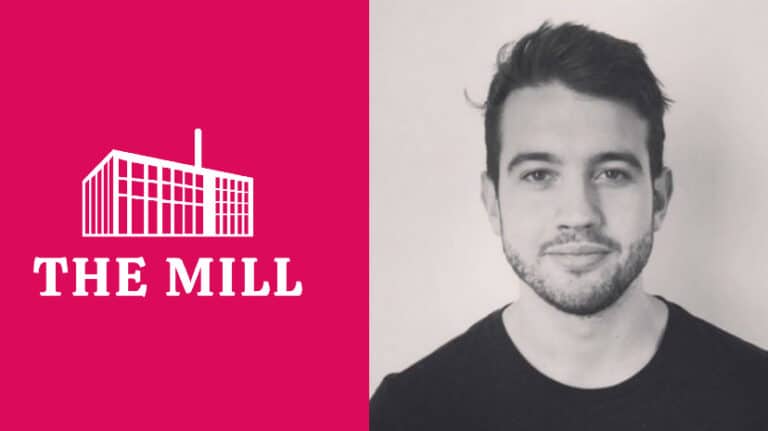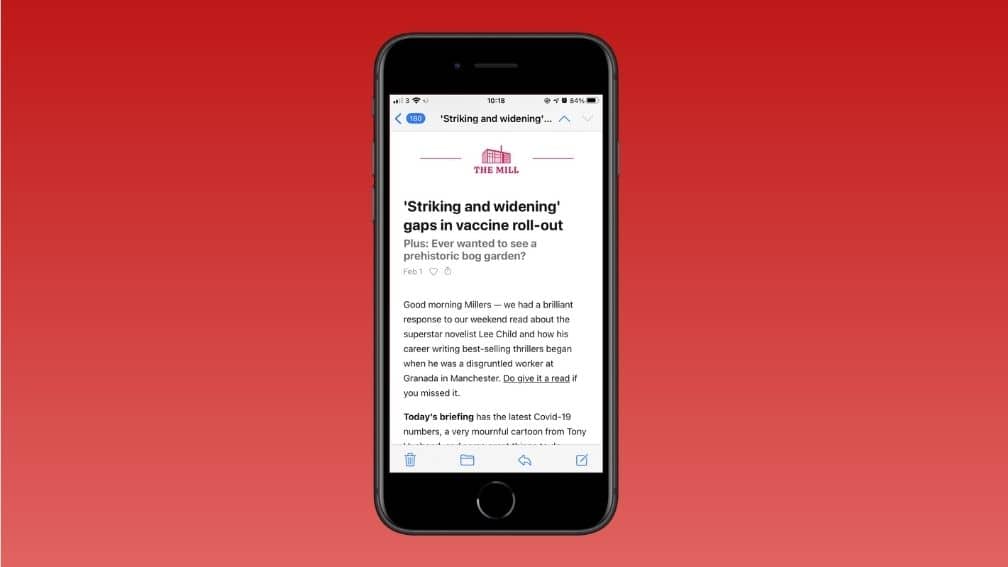The man behind a Manchester-focussed long-form journalism newsletter has revealed how its fast growth has allowed for podcast and video expansion plans less than a year after launch.
The Mill is the creation of freelance journalist Joshi Herrmann, who launched the newsletter during lockdown after moving to Manchester last year.
Through newsletter platform Substack, which allows creators to manage, send, and charge a fee for newsletters, he sent out the first free issue of The Mill in June 2020 as a side project.
By late-September of last year it had amassed enough subscribers to become Herrmann’s full-time focus, offering a free version and a paid access to extra content.
The newsletter now has 10,800 free subscribers and 775 paying subscribers who opt to pay £5.95 a month or – as over half his paying subscribers have done – £59.50 for an annual subscription.
The growth was a surprise to Herrmann, who said he had expected it would be a part-time gig for at least a year.
Having tried the usual routes for promotion, including social media and paid digital advertising, he found that significant growth surges tended to follow more ambitious stories, the type not typically seen in local press.
The growth, he explained, was in part due to the nature of delivery. Those who had signed up could easily share the content they enjoyed with other people by simply forwarding the email.
“A lot more people signed up than I expected, which meant that within a few months it was breaking even”, he told Prolific North.
Among its stand-out successes are the ‘long-reads’ – longer-form, more ambitious pieces which go out to both free and paying subscribers at the weekend.
“That’s the kind of piece I’ve written quite a bit in my career, and people have responded incredibly well to that,” he said.
But it is not just Herrmann writing for the newsletter. He said that because around 400 of the newsletter’s early subscribers began paying immediately, he was able to bring in freelancers to bolster the content.
Writers include seasoned local journalists, contributors to The New York Times and Washington Post, and trainee journalists writing for the first time.
Of the work contributed by these writers, Herrmann highlights stories including an exploration of the secrecy surrounding Burnage Garden Village, a cooperative neighbourhood in South Manchester; an investigation into how Manchester flats are sold to buyers in Hong Kong; and a recent piece about vaccine queue jumping.
He said local journalism tends to make people think of “crime, politics and planning in print newspapers or on websites that have dozens of stories with lots of ads”.
While the difference between these websites and a newsletter might at first seem unimportant, Herrmann said that, as well as feeling more personal (readers are called ‘Millers’), a newsletter builds a habit of expectation, where a website bookmark might not.
“People expect to get a Mill story on a weekend morning. Our [paying] members expect them throughout the week,” he said.
Now Herrmann said he plans to bring in a graduate hire in the summer, and expand its output into podcasts and video.
“There’s an assumption that people won’t pay for local news, because they haven’t been. They’ve been given it for free by the big newspaper groups,” he explained.
But, he said of his bet on his audience: “people are willing to pay for local news if it has a level of intelligence and thoughtfulness, it’s well-researched and it’s done with integrity.”
He said there was “massive potential” for a return to subscription-based content, pointing to Substack successes in the US, and that hopes for further growth were still high.
“I think 95% of people who will eventually pay for The Mill and love it haven’t heard of it yet.
“These are really good signs about people’s willingness to fund high-quality local journalism.”












